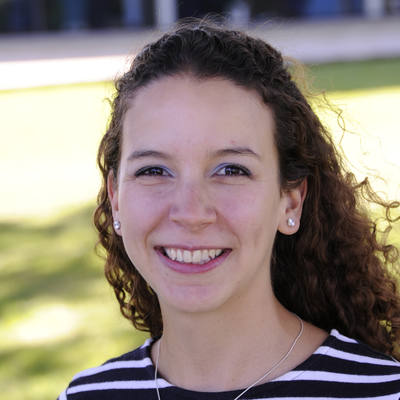
Alumni
This person is a member of Sanger Institute Alumni.
I am convinced the best way to generate innovative and impactful research on infectious diseases is to work in collaboration with experts on diverse areas. In my current research, I lead projects studying host gut epithelia and whipworms (Trichuris sp.) interactions. This work is possible through the collaboration with Professor Richard Grencis and Professor David Thorton and their groups at the University of Manchester, Dr Peter Nejsum at Aarhus University (Denmark) and Dr Amy Buck at the University of Edinburgh.
Whipworm infection causes the neglected tropical disease Trichuriasis, which affects millions of children around the world. Infection occurs by ingestion of whipworm eggs which, upon arrival to the gut, hatch and liberate larvae that burrows through the gut epithelia. My goal is to more fully understand the initial stages of the epithelia infection by the larvae, a crucial step that determines whether the worms are expelled or remain in the gut causing chronic disease. In the long term, this knowledge will help to develop vaccines and discover drugs to fight whipworm infections.
To study the responses of both, the gut epithelia and the whipworm, during early infection of mice with Trichuris muris, I use single-cell transcriptomics, proteomics and microscopy. Moreover, I am developing a new model to investigate these interactions using cecal organoids and microinjecting them with whipworm larvae. This technique will potentially replace mouse infection models and facilitate a better understanding of human disease. In the future, I expect the organoid system can be applied to study the interaction of the epithelia with other parasitic worms that cause important neglected tropical diseases.
Additionally, as part of the Infection and Immunity Immunophenotyping (3i) consortium and together with the University of Manchester, I lead the challenge of hundreds of different mouse knock-out strains with whipworms to identify genes that are crucial in the immune response to this nematode.
Complementary to my scientific work are the activities of public engagement in which I am working together the Genome Campus Public Engagement team. Through these activities I spread the word on the importance of the research to battle Trichuriasis that we are doing at the Sanger. Currently, I am involved in the Genome Decoders Project, in which together with the Institute for Research in Schools (IRIS), we are bringing together scientists with A-level students to annotate the genome of the human whipworm. Moreover, in collaboration with researchers at the University of Antioquia (Colombia), I am currently developing a public engagement strategy to work with whipworm infected children and their families in an area of the Colombian Caribbean that presents high prevalence of Trichuriasis.
My timeline
NC3Rs David Sainsbury Fellow, Wellcome Trust Sanger Institute
Marie Sklowdoska-Curie Fellow, Wellcome Trust Sanger Institute
Postdoctoral Fellow, Wellcome Trust Sanger Institute
PhD (Dr. rer. nat), Max Planck Institute for Infection Biology, Germany
Postdoctoral Fellow, Max Planck Institute for Infection Biology, Germany
Special Project Associate, Mayo Clinic, USA
Biology B.Sc., Universidad de Antioquia, Colombia
My publications
